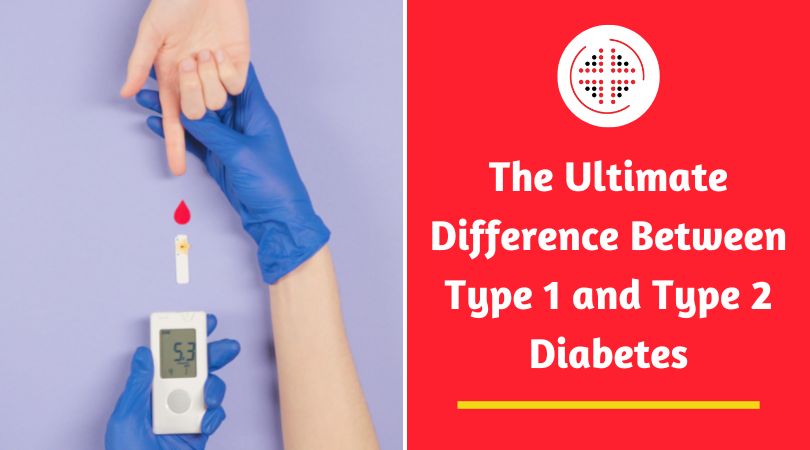


Regardless of whether you have type 1 or type 2 diabetes, there are several factors you should be aware of. To assist you in choosing the appropriate treatment, below are some differences between type 1 and type 2 diabetes.
Type 1 diabetes is insulin-dependent diabetes. With this condition, the pancreas produces little or no insulin. Insulin is a hormone that the body utilizes to let glucose (sugar) into cells, which can be used to make energy.
Various factors, including genetics and some viruses, may bring on type 1 diabetes. While type 1 diabetes typically first manifests in late childhood or early adolescence, it can also strike adults.
Type 2 diabetes is a chronic ailment that prevents your body from properly utilizing insulin. Insulin resistance is a term used to describe people with type 2 diabetes.
The most susceptible age group for this type of diabetes is middle-aged or older. It was formerly known as adult-onset diabetes. However, because of childhood obesity, type 2 diabetes affects children and adolescents.
About 29 million Americans possess type 2 diabetes, making it the most prevalent type. People can address type 2 by exercising, eating healthy, and losing weight.
The table below highlights the main distinction between type 1 and type 2 diabetes:
Basis | Type 1 | Type 2 |
State | Due to an autoimmune disorder, the pancreas produces minimal or no insulin. | The inability of the body to produce an optimal amount of insulin. |
Group | Appears in children and younger adults | Found mainly in elders |
Symptoms | The onset of symptoms is abrupt. | The emergence of symptoms is delayed and progressive. |
Management | Insulin is required to manage the disorder. | Both insulin and lifestyle changes can work in management. |
As there is no cure for type 1 diabetes. However, both types of diabetes are treatable, and the better your diabetes is managed, the healthier your living is and less complications you’ll endure. Both conditions are equally serious. Regardless of whether you have type 1 or type 2 diabetes, possessing high blood glucose levels can cause major health consequences. Therefore, if you have either disease, you must address it in a time-efficient manner.
An excess of glucose in the blood characterizes both type 1 and type 2 diabetes.
Type 1 diabetes is an indication of an autoimmune disorder. This indicates that your body has begun eliminating the cells responsible for producing the insulin hormone. Thus, your ability to produce balanced insulin has diminished. We all require insulin to transport glucose from the blood into the cells of our bodies. Humans then use glucose as fuel. The level of glucose in your blood rises excessively in the absence of insulin.
Diabetes type 2 is different. If you have type 2, your body doesn't generate sufficient or ineffective insulin. Similar to type 1, this denotes a very high blood glucose level. However, type 2 diabetes is due to lifestyle rather than genetics.
Below are the common risk factors of type 1 and type 2 diabetes–
Type 1
The primary risk factors of type 1 diabetes include:
Type 2
The primary risk factors of type 2 diabetes include:
Diabetes type 1 patients must use insulin to regulate their diabetes. Insulin can be injected intravenously or through a pump. Both type 1 and type 2 diabetes are addressed through medications and leading a healthy lifestyle that comprises activity, diet, and routine.
Diabetes can take a toll on your life; hence, taking the proper medication is critical. At MI Express Primary Care in Canton & Ann Arbor MI, we recognize your concerns and work with you to keep your diabetes under wraps with tailored treatment plans. Contact us today and let your medical experts assist you in maintaining a fulfilling, diabetically balanced life!